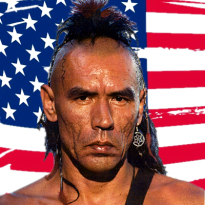Even before a Florida court gave state pols the green light to pass legislation that would allow the development of destination casinos, Las Vegas Sands’ Sheldon Adelson was maneuvering to (a) score a Miami casino license, and (b) prevent his Genting Malaysia rivals from doing likewise. Not to be outdone, Florida’s Seminole Tribe is calling for a plague on both Sands and Genting’s houses. Seminole Gaming CEO Jim Allen held a press conference this week at which he reminded Floridians just who that person was on their state flag. “That’s a Seminole lady on there, that’s not somebody from Las Vegas.” The Seminoles signed a new compact with the state last year giving them certain exclusive gaming rights outside of South Florida, and they figure that should put them at the front of the line for any new destination casino license.
 On Thursday, another prominent Indian tribe was delivering much the same message to federal politicians in Washington regarding future online poker licenses. Seneca Nation president Robert Odawi Porter told the Senate Committee on Indian Affairs that the big US casino outfits were seeking to stack the deck in order to give themselves “an instant monopoly” over US online poker.
On Thursday, another prominent Indian tribe was delivering much the same message to federal politicians in Washington regarding future online poker licenses. Seneca Nation president Robert Odawi Porter told the Senate Committee on Indian Affairs that the big US casino outfits were seeking to stack the deck in order to give themselves “an instant monopoly” over US online poker.
Porter pointedly asked Committee members whether they really wanted to “squash tribal sovereignty and tribal ingenuity by acquiescing to the powerful internet gaming interests in Nevada and New Jersey?” Spectrum Gaming Group managing director Michael J. Pollock was on hand to remind the Committee that “the interests of tribal casinos were not even considered” in early drafts of Sen. Harry Reid’s failed 2010 online poker bill, an omission Pollock found “mind-boggling.”
Invoking the image of civil rights icon Rosa Parks, Porter pleaded with the Committee not to stick Indian tribes “at the back of the Internet bus.” Porter also played another, more direct historical guilt-by-association card. “Like land homesteaders and gold stake claimers before them, these Nevada and New Jersey moguls see Indian gaming as a competitive threat and are determined to shove Indian gaming away from the table or, at best, deal Indian gaming a short hand. That brazen power grab is premised on the fiction that the big Nevada and New Jersey interests are alone sophisticated enough to operate Internet gaming in the first wave.”